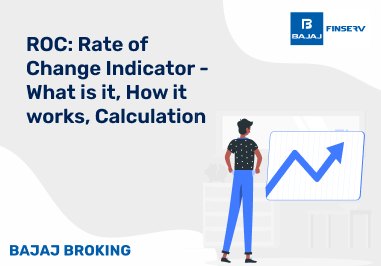One of the main reasons why mutual funds are popular investment options is that they provide investors with a wide range of assets to choose from or combine. This can include investments or securities like stocks, bonds, etc. Mutual funds are customised according to the investment and financial goals of an investor and are managed by portfolio managers whose aim is to help investors generate profits. There are several types of mutual funds and one such mutual fund is the arbitrage mutual funds.
With the help of an arbitrage fund, traders and investors can buy and sell securities in different markets thus enabling them to benefit from even the smallest difference in prices in these markets. However, before you decide to jump on the opportunity to invest in an arbitrage fund, it is important to know all the aspects of the mutual fund to make an informed investment decision.
What are Arbitrage Funds?
The usual working of a mutual fund is centred around purchasing stocks and selling them at a later date when the price goes up. This, however, is not how arbitrage funds work. An arbitrage mutual fund is specifically more attractive to traders and investors who want to profit from volatile markets with fewer risks.
Since arbitrage funds let investors trade in securities in different markets, the chances of traders profiting from the price differentials in different markets are high. Two markets that are especially popular and important in arbitrage mutual funds are the cash market and the futures market.
Traders can buy stocks in the cash market and then sell them in the futures market. However, since both these markets are considerably smaller, traders need to carry out more trading throughout the year to generate significant profits.
Working of Arbitrage Mutual Funds
To understand the workings of an arbitrage fund, here are two examples.
Example 1: Where there are Price Differences between the Exchanges
Let us suppose that the stock of company A sells at ₹1000/share on the stock exchange of state 1.
The same stock is selling on the stock exchange of state 2 at ₹1010/share.
If the arbitrage fund manager can recognize this difference, then they can buy the stock from state 1’s exchange and sell on state 2’s exchange.
This will help the trader gain ₹10/share without any risks.
Example 2: Where there are price differences between the Cash and Futures Markets
Let us suppose that the stock of company A sells at ₹1000/share on the cash market.
The same stock is selling on the futures market at ₹1015/share.
If the arbitrage fund manager can recognize this difference, then they can buy the stock from the cash market and prep a contract on the futures market to sell the stock at ₹1015/share.
When the stock is sold in the future, the trader will record a profit of ₹15/share with close to no risks.
Features of an Arbitrage Mutual Fund
To understand more about arbitrage funds, it is important to know about its various features as well. Here is a list:
Equity-oriented
When it comes to arbitrage funds, 65% of the portfolio of the funds needs to revolve around equity-related products.
Holds Hedged Exposures
The arbitrage funds portfolio contains hedged exposures.
Low-Risk
When it comes to the post-tax return, arbitrage funds tend to perform better than non-equity-oriented funds to a great extent.
Works Well Even in Unstable Markets
Arbitrage funds work very well even in the most volatile of markets.
Benefits of Investing in Arbitrage Funds
Now that you have gone through the main characteristics of the features of arbitrage funds, it is also important to recognise the benefits having an arbitrage fund holds for a trader:
Low Risk
One of the main worries of a trader is when trading is the risk factor a security holds.
Arbitrage mutual funds carry a low level of risk as every security is purchased and sold.
In this method, there is hardly any risk involved especially for longer-term investments.
With the help of arbitrage funds, investors can also invest part of their capital into debt securities, which happen to be quite stable securities.
Since they are usually unaffected by market volatility, they make very attractive options for traders and investors.
The price difference of securities in both the cash market and futures market increases when the market is volatile.
When the market is stable, individual stocks rarely show much difference in prices.
However, where there is volatility, there is a risk, but with arbitrage funds, investors can let the market volatility work in their favour without letting the risk factor affect them too much.
Taxed as Equity Funds
Even though 65% of an arbitrage fund portfolio consists of equities, it is considered a hybrid fund as it invests in both stocks and bonds.
This is why they are taxed as equity funds since there are more long equities in the portfolio.
For investors who have shares in an arbitrage fund for more than a year, the gains from the funds are taxed at the capital gains rate.
This rate however is lower than that of ordinary income tax rate.
Arbitrage Mutual Funds Returns
Here is everything you need to learn about the returns that can be generated through arbitrage mutual funds.
The returns in an arbitrage mutual fund are comparable to those of short-term debt instruments like FDs or liquid instruments.
Arbitrage funds, however, also hold the potential to outperform these options due to their equity taxation benefits.
There is also a flipside to this. When it comes to the returns from the arbitrage mutual fund, it can be unpredictable as the market fluctuations that it exploits can sometimes not be readily available.
Risks in Arbitrage Mutual Funds
While there are quite a few benefits that come with investing in arbitrage mutual funds, it does not come without its fair share of risks either. Let us have a look at some of them:
When compared to other types of debt funds, arbitrage funds have higher expense ratios as they need constant monitoring and management to capitalise on market opportunities.
Since both cash and futures markets are small it can take traders a whole year of trading in arbitrage funds on these markets to produce significant returns.
A portfolio in an arbitrage fund invests a portion of an investor’s capital into debt instruments. These instruments can sometimes fall prey to interest rate fluctuations. With rising interest rates, the net asset value ends up declining.
Who should invest in Arbitrage Funds?
Though investing in arbitrage funds can come across as an immensely attractive option, it works great for investors who are looking for a low-risk investment. Arbitrage funds also work well for investors who are looking to invest in short-term to medium investments and want to add more diversity to their portfolio.
Should You Invest in an Arbitrage Fund?
Investing in arbitrage funds can yield the following benefits for an investor:
Low Risk:
As previously discussed, arbitrage funds are less risky for the investor since securities are bought and sold at the same time, reducing the risks that come with longer-term investments. The portfolio of an arbitrage fund also consists of investments in debt instruments which happen to be comparatively more stable than other securities.
Taxation
Arbitrage funds usually invest in equity, but a part of their portfolio also consists of investment in debt instruments. This classifies them as hybrid funds which are taxed as per equity funds.
Listed below are the tax rules in such a case:
Short-Term Capital Gains taxed at 15%
Long-Term Capital Gains taxed at 10% without indexation
Factors to consider before investing in Arbitrage Funds
If you are looking into investing in arbitrage funds then it is important to consider certain factors. Here is a list of some of them:
When investing in an arbitrage fund, the expense ratio of the fund must be low.
Before they choose to zero in on an arbitrage fund, investors should compare the returns generated by different arbitrage mutual funds so that they can make an informed decision.
Despite being a hybrid fund, arbitrage mutual funds are taxed similarly to equity mutual funds as 65% of their portfolio consists of equities.
Short-term capital gains in arbitrage mutual funds are taxed at 15%, while long-term capital gains under 1 lakh rupees are entirely tax-free. Long-term capital gains of over a lakh are taxed at 10%, without indexation.
Conclusion
If you are a trader or investor looking to invest in a security that provides you with a balance between returns and risk mitigation, then arbitrage mutual funds are a good option. Arbitrage funds capitalize on the price differences between different markets or exchanges to generate returns.
However, it is also important to remember that Mutual Fund Investments are subject to market risks, so read all scheme-related documents carefully before you decide to invest. By keeping factors like market conditions, tax implications, expense ratio, etc, investors can make better-informed decisions.














